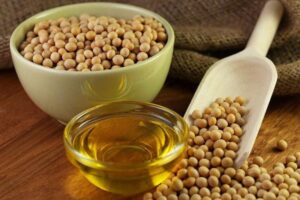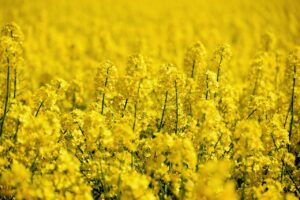
Ukraine could increase its annual agricultural exports from $24.2 billion to over $100 billion by shifting from exporting raw materials to increasing the production of deeply processed products, which would require $85 billion in investments, said Leonid Kozachenko, president of the Ukrainian Agrarian Confederation (UAC).
“We have the best opportunities among other countries, as almost 30% of the world’s black soil is concentrated in Ukraine. However, it is surprising that a country like the Netherlands, with 4.5 times less land, produces food and derivative products worth about $108 billion. They use less than 20% of their own raw materials, import 80%, but rank 2nd or 3rd in the world, while we, with our raw materials, are only in the third ten,“ he said at the conference ”Profitable Agribusiness 2026.”
According to the expert, the total capitalization losses of the agricultural sector from the Russian Federation’s military aggression are currently estimated at more than $120 billion, while direct losses amount to $11.5 billion. In particular, almost 4.7-5 million hectares of land remain mined or contaminated with heavy metals. Livestock losses amount to 5 million chickens, 350,000 pigs, and 150,000 cows. In addition, more than 7,000 units of agricultural equipment and hundreds of logistics facilities have been lost.
Kozachenko expressed confidence that if the genetic potential of plants and animals is realized by at least 90%, Ukraine will be able to reach production levels of 150 million tons of grain and oilseeds, 25 million tons of milk, and up to 10 million tons of meat.
To realize this potential, according to the UAC president, Ukraine needs to attract $85 billion in investments over the next 10 years. These funds should be directed towards the development of the food, pharmaceutical and perfume industries ($37 billion), livestock farming ($18 billion), crop production ($8 billion), irrigation restoration ($7 billion) and bioenergy development ($5.5 billion). Another $10 billion should be allocated to logistics, horticulture, and greenhouse farming.
To stimulate the development of the agricultural sector, the UAC proposes introducing land and network connection incentives for deep processing plants, introducing a 25% subsidy for equipment, and creating a specialized mortgage banking institution. It is also proposed to involve international companies in the certification of products according to European standards directly in Ukraine.
“We have found financial resources of over $50 billion that were ready to be given to us to create the first mortgage bank in Ukraine. We have everything we need to launch this mechanism, so let’s work together to convince officials to start using it. We really need to cross the $100 billion gross output threshold, and this should be our strategic priority for the next decade,” Kozachenko emphasized.
The UAC president also announced joint proposals from a number of agricultural associations to accelerate the privatization of state-owned enterprises that can be involved in processing chains and to stimulate the development of industrial parks with special fiscal conditions. In particular, agricultural associations propose introducing subsidies of 10% for enterprises that use domestically produced deep-processed raw materials in their production and providing state guarantees to foreign creditors for the purchase of technological equipment.
An important aspect remains the digitization of the industry, in particular the creation of digital platforms for entering global markets, following the example of the Ukrainian resource Allbiz, which specializes in e-commerce and structuring offers in the B2B sector, as well as the introduction of European licensing practices through accredited offices of international certification companies, the UAC president concluded.

On February 2, the President of Uzbekistan was briefed on the current state and development plans for the coal and uranium industries. They discussed increasing coal production, strengthening competition in the industry, and the efficient use of existing reserves.
As noted, 10 million tons of coal are planned to be mined in the fall-winter season of 2025-2026, which is 1.3 million tons more than last season. As of today, 9 million tons of coal have been mined, an increase of 590,000 tons. It was emphasized that in the next season, it is necessary to bring production volumes to 11 million tons.
To achieve this, it is important to accelerate the development of deposits located in the Tashkent and southern regions, expand selective mining, and attract additional excavators and equipment on an outsourcing basis. By expanding the participation of private entrepreneurs, it is planned to extract an additional 2.5 million tons of coal in 2026.
Particular attention was paid to the project to develop the Nishbosh coal deposit in Angren. As part of the investment project, estimated to cost nearly $500 million, with reserves of 233 million tons, it is planned to start production in 2026 and ensure the production of 1 million tons of coal. In the future, the annual productivity of the deposit is expected to reach 10 million tons. The project will create 880 permanent jobs.
The presentation also discussed a project to produce new types of industrial products based on deep coal processing. At the initiative of the joint-stock company Uzkimyosanoat, it is planned to organize the production of polymer products based on chemical coal processing. The $5 billion project involves the creation of facilities for processing 8-9 million tons of coal and producing 1.18 million tons of polymer products per year.
Last year, 7,000 tons of uranium were mined in Uzbekistan, and the discovered reserves reached 139,000 tons.
This year, it is planned to start developing the Arnasay, Western Kyzylkok, Southern Zhongeldy, and Eastern Agron deposits. In connection with the expected increase in production volumes, the need to increase processing capacities has been emphasized.
Measures have been identified to ensure a stable supply of sulfuric acid for uranium processing and the technical sulfur required for its production.
The president has instructed the responsible persons to ensure the timely and high-quality implementation of planned projects in the coal and uranium industries, increase production volumes, and improve economic efficiency.

Kernel, one of Ukraine’s largest agricultural holdings, processed 995,000 tons of oilseeds in the second quarter of fiscal year 2026 (FY, October-December 2025), which is 2% more than in the same period last year and 78% more than in the previous quarter, the agricultural holding reported in its quarterly report.
It specified that sunflower seeds accounted for 85% of the total volume, with the remainder being soybeans, which were processed to partially offset the impact of limited availability of sunflower seeds on the domestic market.
According to the agricultural holding, oilseed processing volumes in July-December 2025 decreased by 6% compared to the same period last year, to 1.6 million tons, which is a result of a decrease in processing volumes under tolling agreements compared to the corresponding figure a year ago.
Sales of Kernel edible oil in the second quarter of 2026 amounted to 411 thousand tons, which is at the level of the same period last year, but the total figure for the first half of the year exceeded the result for the same period a year ago by 30% due to higher oilseed processing volumes. Bottled sunflower oil accounted for 17 thousand tons of total sales.
Silos received 2.3 million tons in the second quarter of 2026 FY, reaching 3.5 million tons in the first six months of 2026 FY.
“The 35% increase on an annualized basis was supported by higher overall grain availability due to increased corn yields in the group’s own agricultural segment, as well as increased grain consumption from third-party suppliers,” the agricultural holding explained.
Kernel’s grain exports reached 1.5 million tons in the second quarter of FY 2026, up 21% from the previous quarter. On an annualized basis, volumes increased by 10%, mainly reflecting the low comparative base of the previous year. The agricultural holding added that overall export rates remained limited due to delays in the harvesting campaign and continued slow sales to farmers.
The throughput capacity of Kernel’s export terminal in the second quarter of 2026 FY was 2.5 million tons, up 35% compared to the previous quarter. Grain crops accounted for 71% of total shipments, edible oils for 16%, and vegetable meal for the rest.
“At the same time, over the six months, the throughput capacity of the terminals decreased by 11% compared to the same period last year amid intensified Russian attacks on Ukrainian ports on the Black Sea and the Danube in the Odesa region, which led to prolonged disturbances and disruptions in the operation of the group’s terminals,” the agricultural holding stated.
Kernel recalled that in October-December 2025, Russian drones twice damaged the group’s port infrastructure in the Odesa region, including vegetable oil storage tanks and a number of production facilities. Preliminary estimates indicate a loss of approximately 500 tons of sunflower oil.
Before the war, Kernel was the world’s leading producer of sunflower oil (about 7% of global production) and its exporter (about 12%). It is one of the largest producers and sellers of bottled oil in Ukraine. It is also involved in the cultivation and sale of agricultural products.

The US International Development Finance Corporation (DFC) approved a $40 million loan agreement for a 10-year term for one of the subsidiaries of Ukraine’s largest sugar producer, Astarta Agricultural Holding.
“DFC will co-finance with the International Finance Corporation capital investments and operating expenses related to the construction of a soybean protein concentrate (SPC) plant,” the agricultural holding company said.
According to Vyacheslav Chuk, director of commercial operations and strategic marketing at the agricultural holding, in September 2025, Astarta intends to continue investing in the construction of its soy protein concentrate plant in 2026, with investments amounting to approximately EUR 40 million.
In 2024, Astarta began investing in the construction of a plant for processing soybean meal into soy protein concentrate with a capacity of 500 tons/day (approximately 100,000 tons/year) in the Hlobyn Industrial Complex (Poltava region). The agricultural holding will invest over EUR 76 million in the purchase of equipment and technologies and will create 110 new jobs.
Astarta and its structural unit Astarta Agro Protein signed the first investment agreement with the Ukrainian government to receive compensation from the state for significant investments. Under the agreement, the state will provide the agricultural holding with a number of incentives, including exemption from import duties on new equipment, import VAT on new equipment, and income tax for up to five years.
Astarta is a vertically integrated agro-industrial holding company operating in eight regions of Ukraine and is the largest sugar producer in Ukraine. It comprises six sugar factories, agricultural enterprises with a land bank of 220,000 hectares, dairy farms with 22,000 head of cattle, an oil extraction plant in Hlobyn (Poltava region), seven elevators, and a biogas complex.
In the first half of 2025, Astarta reduced its net profit by 10.3% to EUR47.11 million, and its consolidated revenue decreased by 29.3% to EUR320.71 million.

October 29, 2025, Kyiv, International Exhibition Center (IEC)
Where is the profit during a crisis? How to scale up agricultural processing, attract investment, implement AI, and overcome the shortage of personnel in the food industry?
Experts, entrepreneurs, and leaders of the Ukrainian food sector will provide answers to these questions during the Agro2Food Profit Forum 2025 — the main event of the year for food producers and processors.
The forum will take place on October 29, 2025, in Kyiv, at the International Exhibition Center, as part of the Agro2Food exhibition of technologies, equipment, and solutions for agro-processing and the food industry.
5 panels. 1 day. Maximum practical benefit.
Panel #1. THE ECONOMICS OF ADDED VALUE IN THE FOOD INDUSTRY. Where is the profit in a crisis?
In partnership with the Interfax-Ukraine news agency.
With the participation of representatives of industry associations, clusters, distributors, and owners of processing businesses, who will share real-life cases of development, scaling, and optimization of production.
Key message: To show how Ukrainian producers are finding new sources of profit even in times of turbulence.
Panel No. 2. THE ECONOMICS OF INVESTMENT AND EUROPEAN INTEGRATION
In partnership with the Reform Support Team (RST) of the Ministry of Economy of Ukraine and ProConsalting. With the participation of a representative of Oschadbank (on agribusiness support programs), the owner of an agricultural processing company (with a scaling case study), and a supplier of processing equipment (on technological innovations).
Key message: How to attract investment during wartime, develop exports, and implement sustainability strategies?
Key topics:
Panel No. 3. ECONOMY OF INNOVATION. “Digitalization. AI. Food processing”
In partnership with the Ukrainian Food Manufacturers Association U-Food and the Ukrainian Cluster Alliance.
Key message: Artificial intelligence is already changing the Ukrainian food industry.
Key topics:
Panel No. 4. HUMAN RESOURCE ECONOMICS. Labor shortage in the food industry: challenges and solutions.
In partnership with the Job Platform for Food Technologists and Manufacturers and Odessa National Technological University.
With the participation of American University Kyiv.
Key topics:
Panel No. 5. THE ECONOMICS OF UNIQUENESS
Main message: Innovative products, intellectual property, and craftsmanship as a profit strategy.
Key topics:
Agro2Food Profit Forum 2025 is:
Agro2Food statistics.
At the exhibition venue, which will reach 4,000 m2, over 120 exhibitors will present all the key achievements in agricultural processing and the food industry.
Organizer:
Premier Expo:
Where and when:
October 29, 2025
International Exhibition Center (IEC), Kyiv
More about the program: https://agro2food.com.ua/program/profit-forum
Media contact:
Olena Zhoga, Conference Manager, Premier Expo
+380 (67) 789 27 09
Agro2Food — Building an economy of added value together.
See you at the main event of the sincere Ukrainian autumn!
Tickets for the exhibition: https://agro2food.com.ua/visitors/registration
Interfax-Ukraine — information partner
Source: https://interfax.com.ua/news/press-release/1112280.html

In September 2025, Ukraine processed a record monthly volume of rapeseed, exceeding 250,000 tons. For the first time in a long time, domestic processing exceeded monthly exports of this crop by 236,000 tons, according to the analytical industry agency APK-Inform.
“At the same time, in late September and early October, trade in this sector slowed down due to the expected decision on the mechanism for exempting soybean and rapeseed producers from the 10% export duty. Against this backdrop, the supply of rapeseed decreased,” analysts noted.
Experts added that a number of processors reported low rapeseed supplies to enterprises and the likely completion of its processing and transition to sunflower, stocks of which were accumulated quite well in September.
Nevertheless, plants raised their demand prices for rapeseed in an attempt to attract more offers, to UAH 23,000-23,500/ton CPT and above for real volumes and large batches, according to APK-Inform.